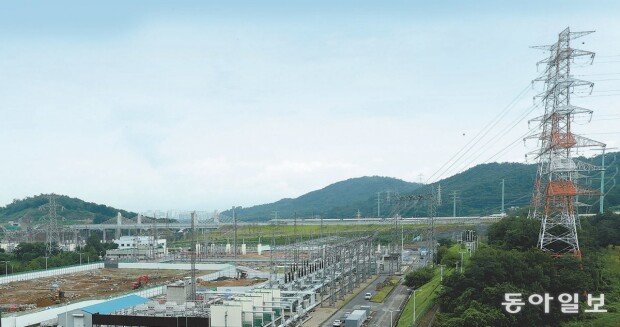Power outage feared in 2028 if transmission lines are not increased
Power outage feared in 2028 if transmission lines are not increased
Posted September. 05, 2024 07:59,
Updated September. 05, 2024 07:59

If transmission lines are not expanded and remain at the current level, a “blackout” due to power shortage will occur four years from now, according to a new study. As the power grid expansion project continues to stall, concerns are escalating that blackouts could become a reality. With the rapid development of the artificial intelligence (AI) industry, the demand for electricity in high-tech industrial complexes such as semiconductors and bio is increasing rapidly, so experts point out that the government should urgently support the expansion of the power grid at the national level.
According to an analysis by The Dong-A Ilbo on Wednesday of the baseline demand changes projected in the 10th Basic Plan for Electricity Supply and Demand and the power supply capacity of the current power grid, South Korea will run out of power by 2028 if its current transmission line volume of 35,596 C-km (circuit kilometers s line length × number of lines) remains unchanged.
The peak electricity demand in 2028 is expected to increase to 107 GW (gigawatts). The current power supply capacity is 104.3 GW, so if the grid is not expanded, there will be a shortfall of about 2.7 GW. A nuclear power plant with a typical capacity of 1 GW can power 333,000 homes. The projection effectively means there could be an electricity shortage for about 900,000 households by 2028.
According to the government's 11th Electricity Master Plan, released in May, the country's peak electricity demand in 2038 is expected to hit 129.3 GW, a 38% jump from last year. If the grid is not expanded, the shortfall will reach 25 GW in 2038.
세종=정순구 기자 soon9@donga.com







